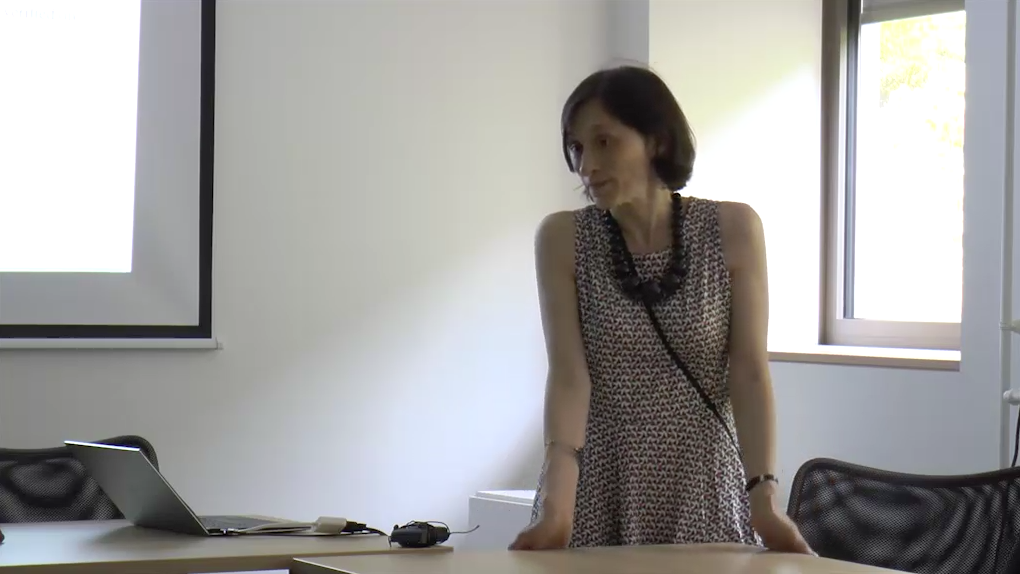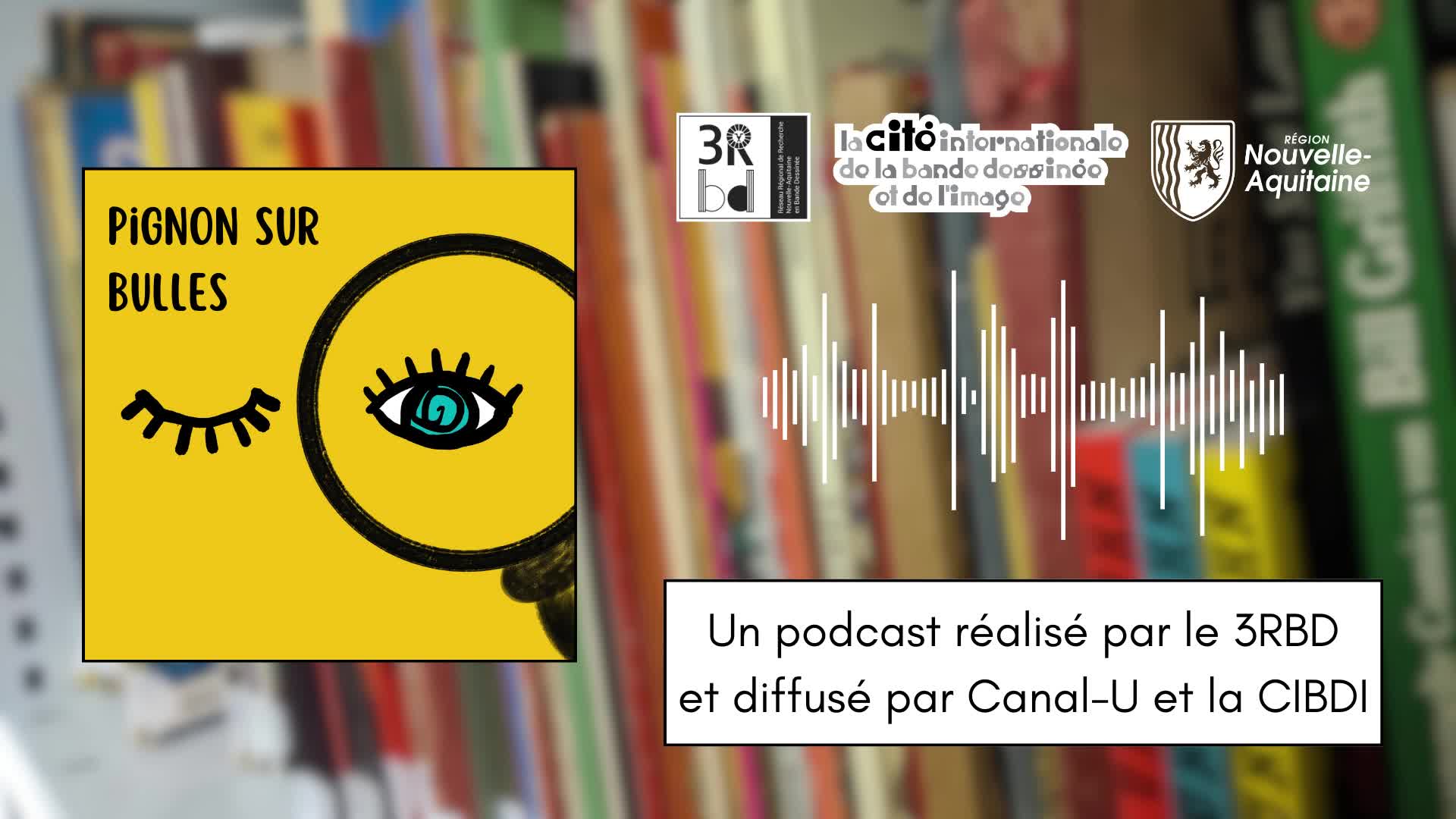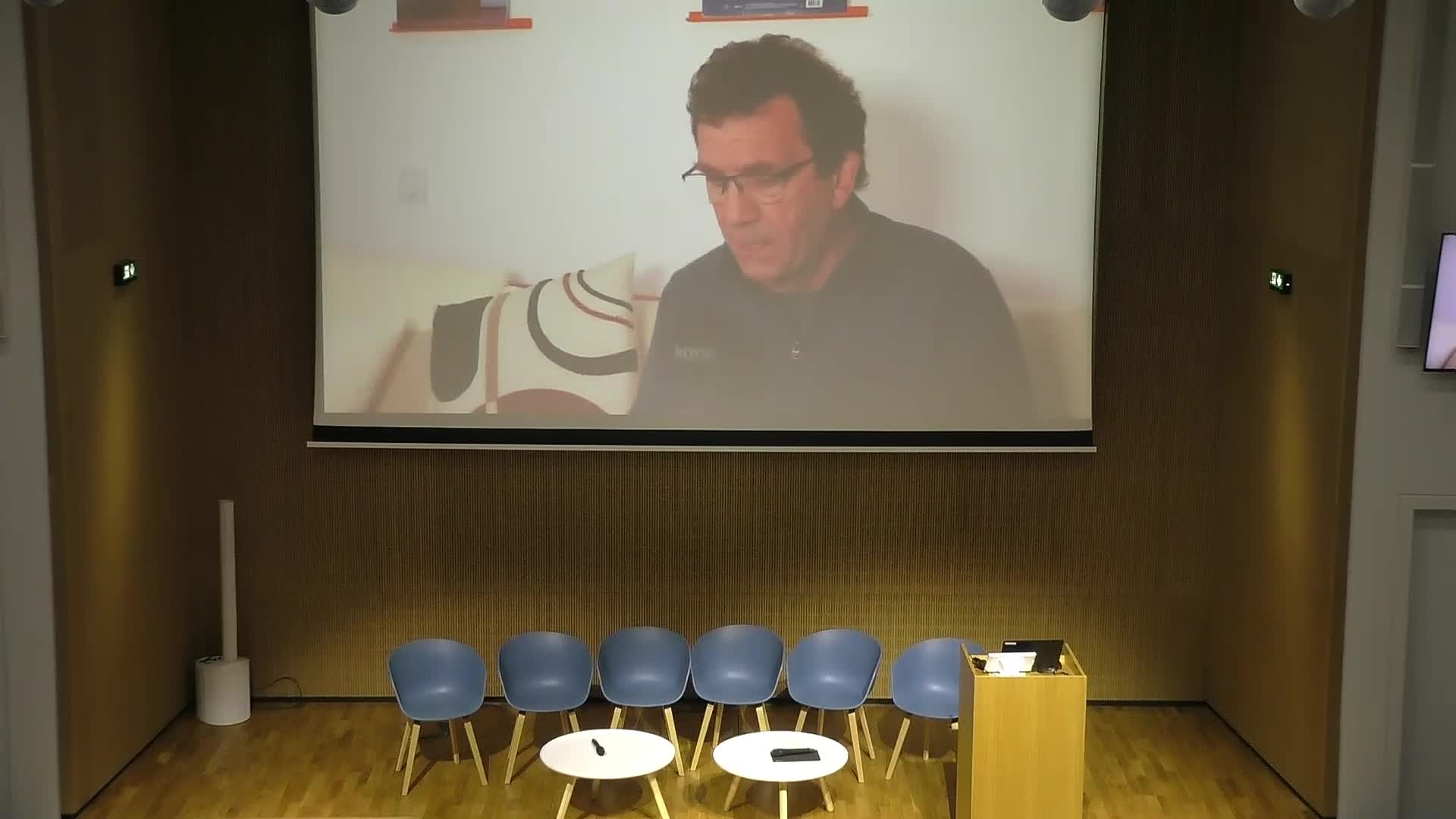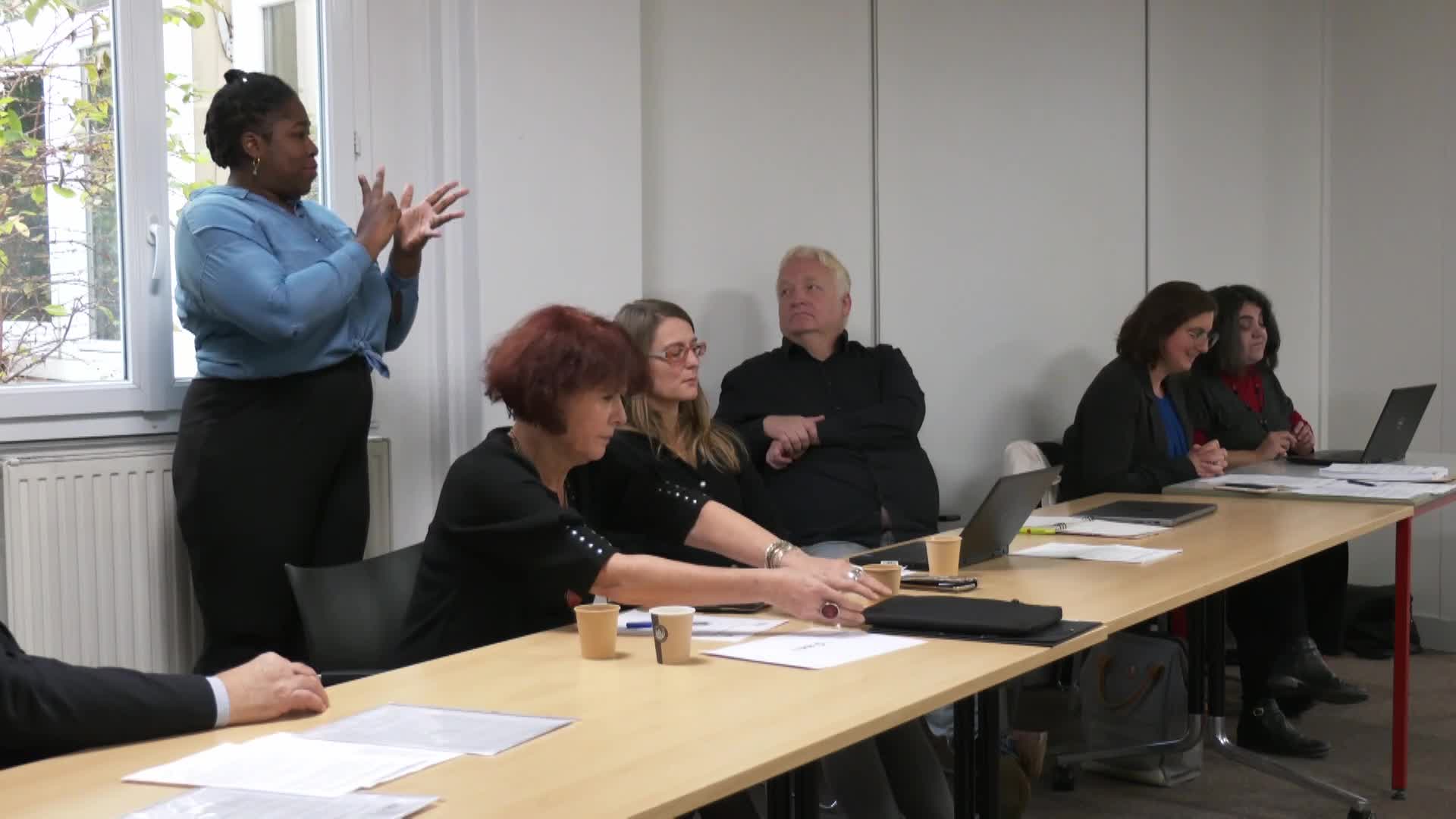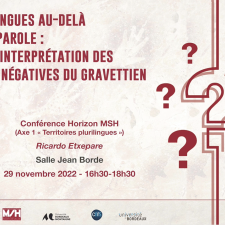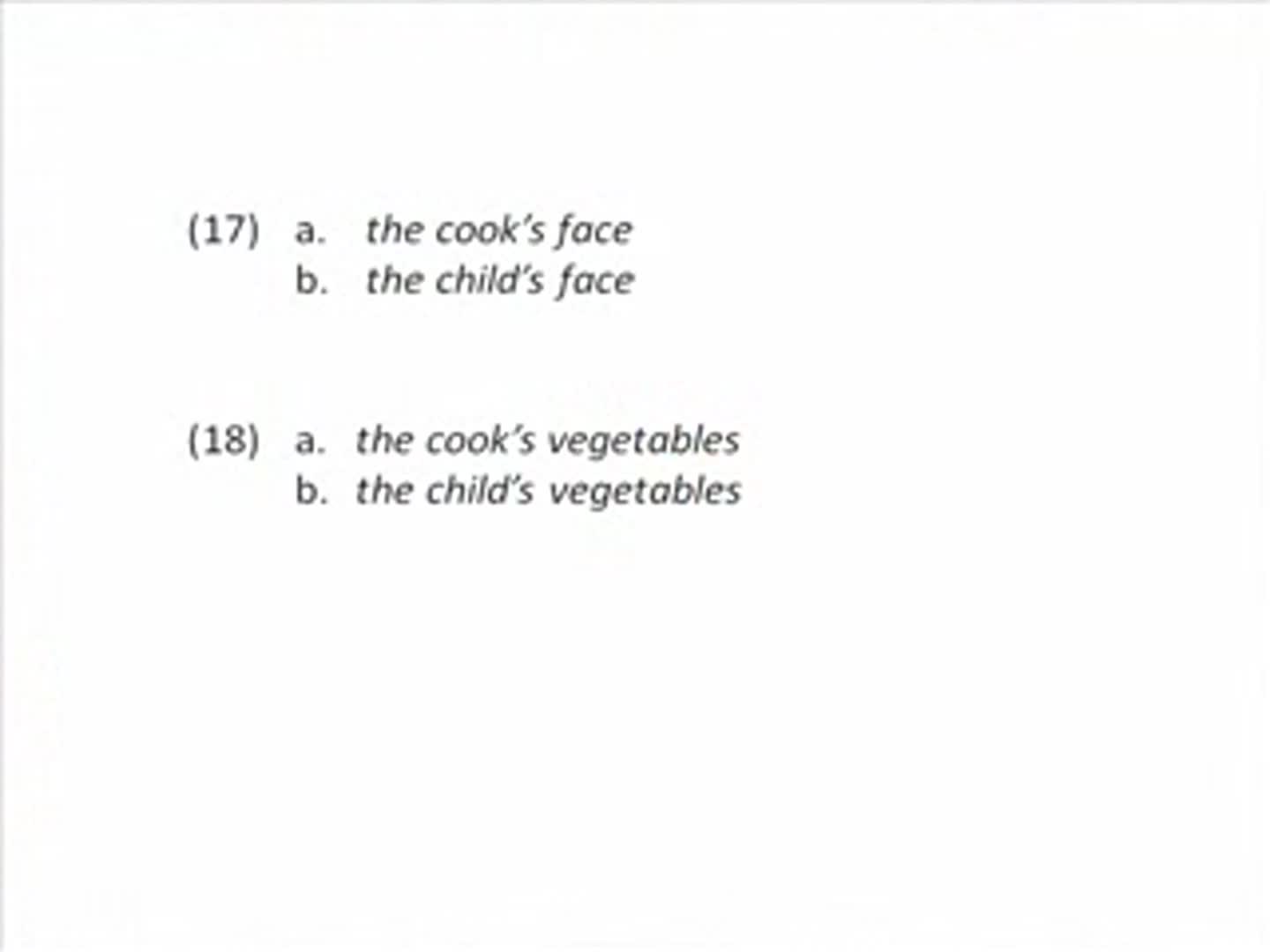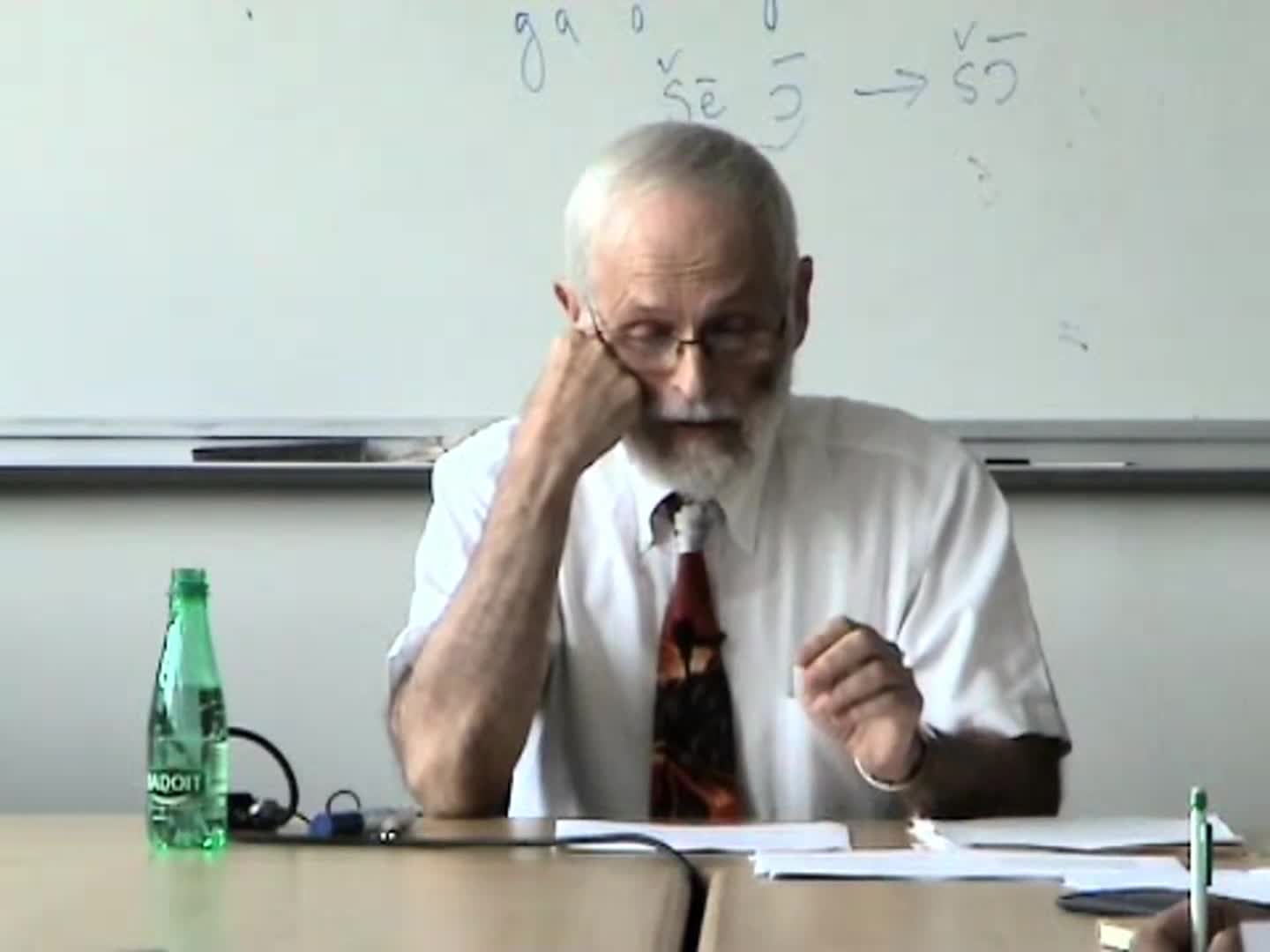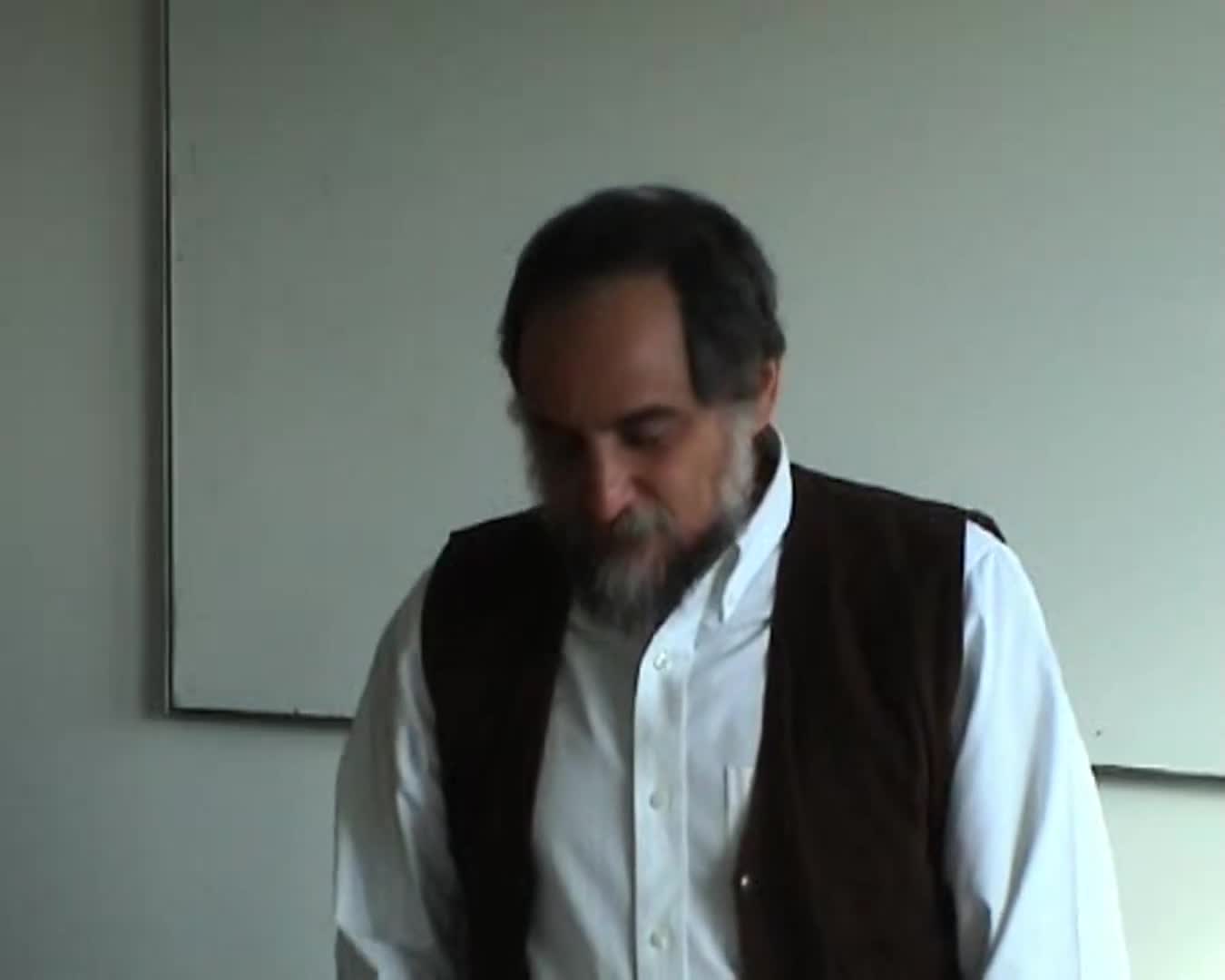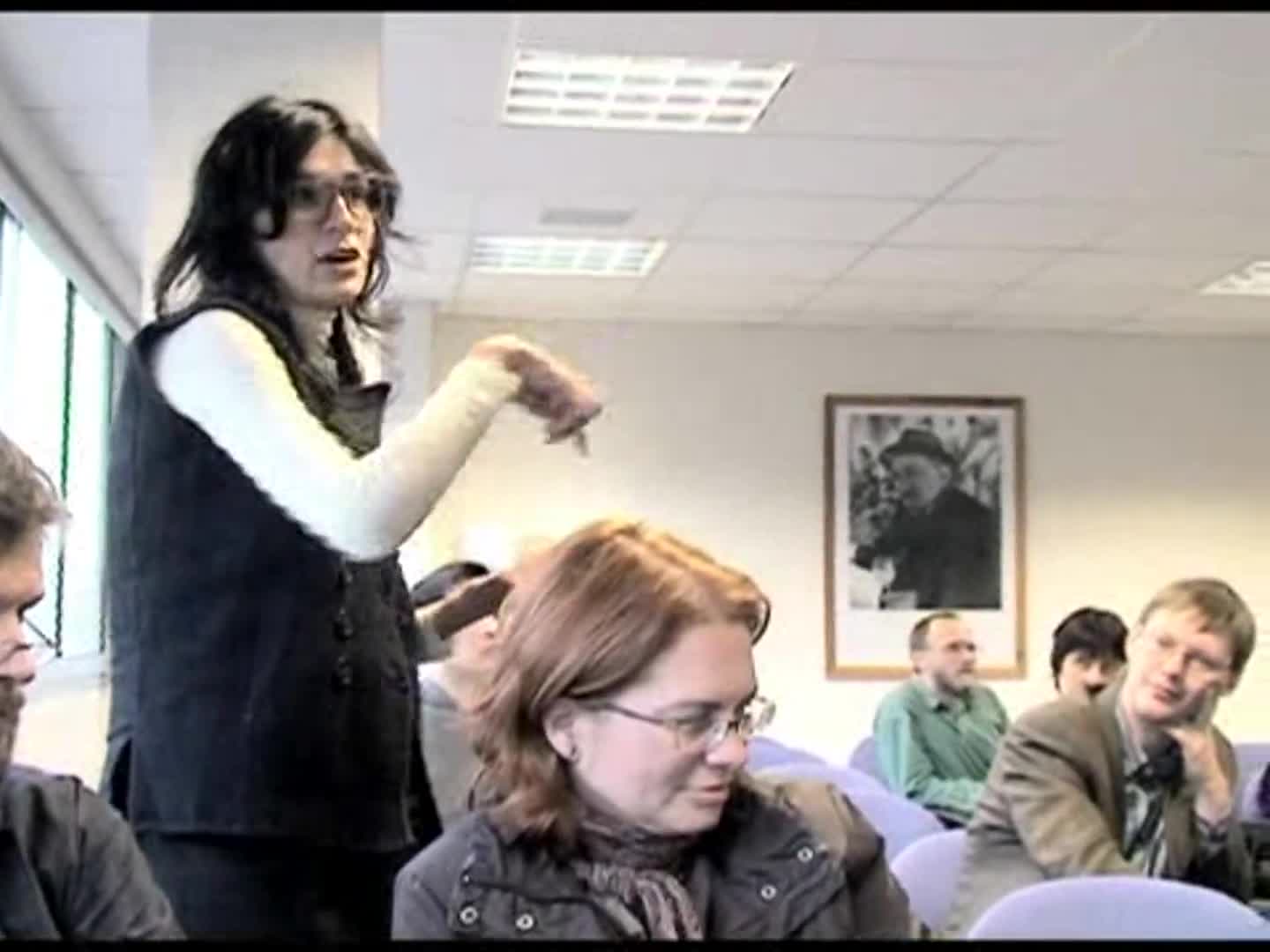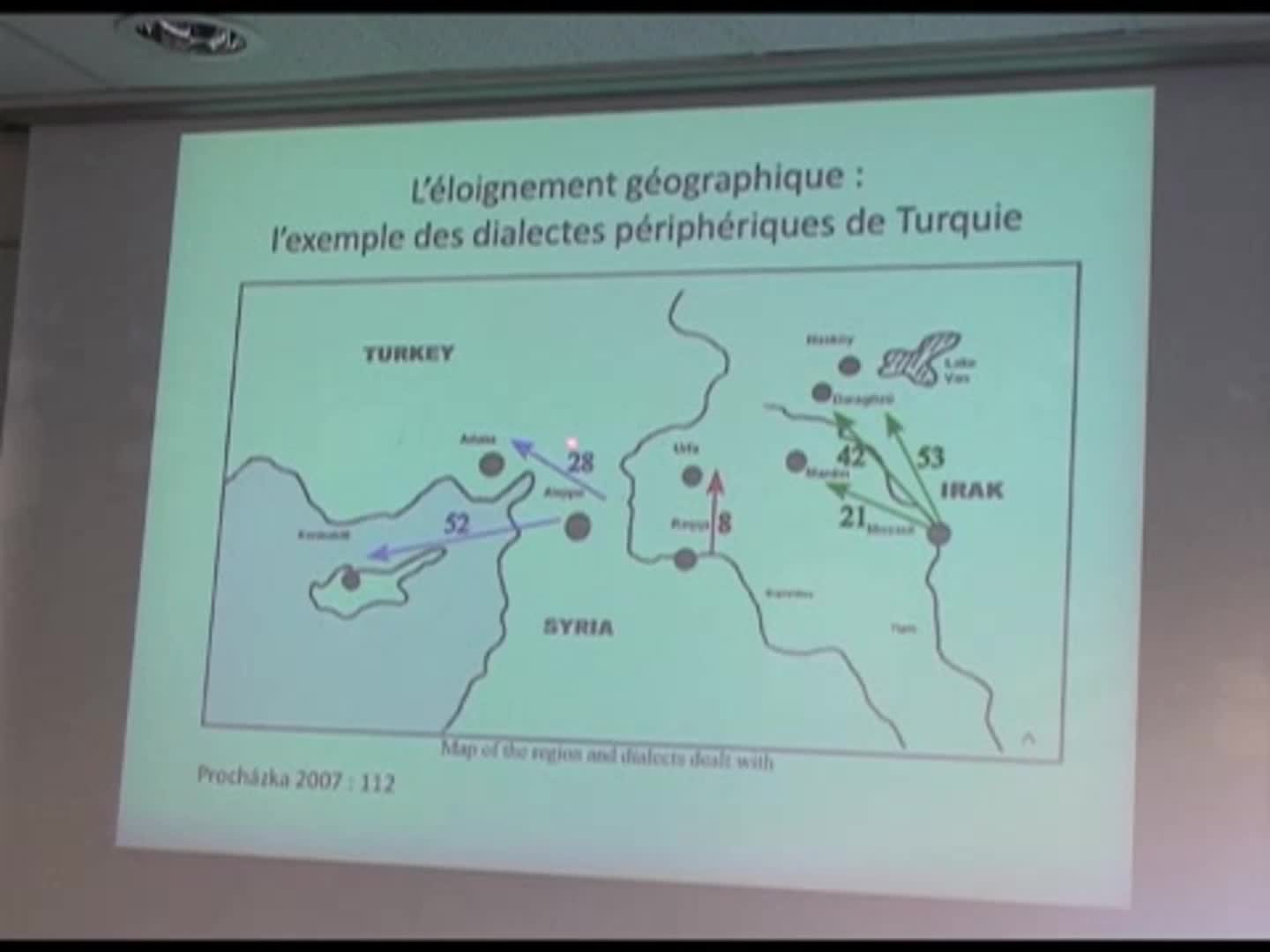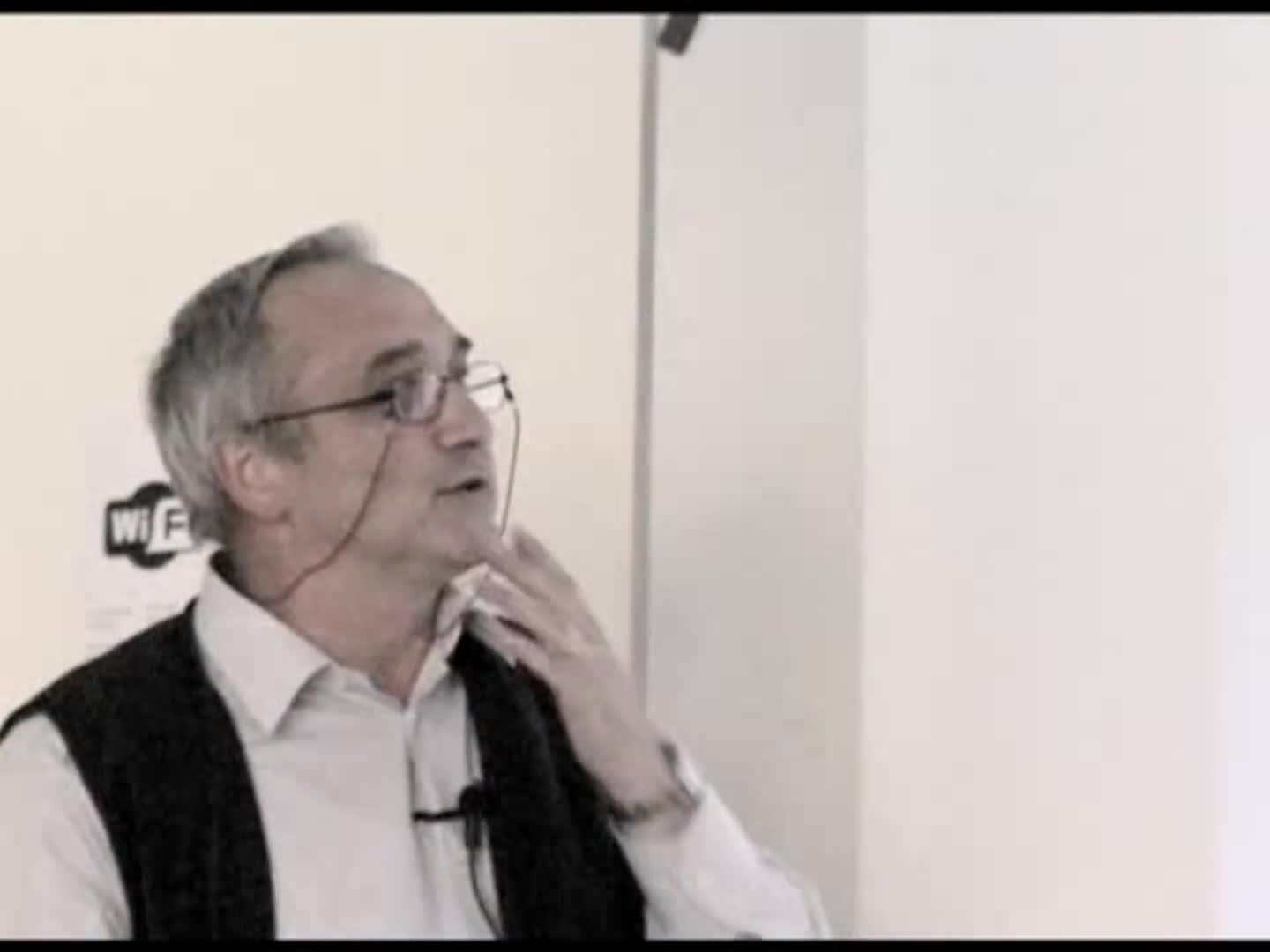Notice
Cross-linguistic investigation of argument structureLecture 3. Speakers’ intuitions Elisabeth Verhoeven
- document 1 document 2 document 3
- niveau 1 niveau 2 niveau 3
Descriptif
Lecture 3. Speakers’ intuitions / Lundi 18 septembre – 16h à 18h – salle de Conférence, RDC bât. D
A crucial part of the relevant generalizations for argument structure is gained through fine-grained intuitions about thematic and event-structural properties of particular verbs, i.e. evidence that cannot be detected with preferences in speech production. In this lecture, we will discuss a cross-linguistic acceptability study that investigates agentivity and stativity as determinants of psych verb grammar in German, Greek, Turkish, Chinese and Yucatec Maya (Verhoeven 2010). Furthermore, by means of judgments of contextual felicity we will compare accusative fronting and dative fronting in German, Greek, Hungarian, and Korean (Temme & Verhoeven 2016). This study shows that the licensing conditions for arguments with the same morphological case differ across languages, which correlates with assumptions about the role of the case in the constituent structure of the languages at issue. Methodological issues: developing stimuli for cross-linguistic acceptability studies; control of lexicalizations and intervening grammatical factors.
Suggestions for Reading
Simík, R. & Wierzba, M. 2017. Expression of information structure in West Slavic: Modeling the impact of prosodic and word order factors. to appear in Language (https://ling.auf.net/lingbuzz/003304).
Temme, A., Verhoeven, E. 2016. Verb class, case, and order: A crosslinguistic experiment on non-nominative experiencers. Linguistics 54.4.
Verhoeven, E. 2010. Agentivity and stativity in experiencer verbs: Implications for a typology of verb classes. Linguistic Typology 14, 213-251.
Dans la même collection
-
Lecture 4 : « Language families in space and time »
« Areal linguistics in Africa before a new approach to its genealogical language classification », Lecture 4 : « Language families in space and time », Tom Güldemann (Humboldt University – Berlin)
-
Lecture 1 : « African language classification beyond Greenberg »
« Areal linguistics in Africa before a new approach to its genealogical language classification », Lecture 1 : « African language classification beyond Greenberg »,Tom Güldemann (Humboldt University –
-
Lecture 3 : « Language contact as an alternative to assumed genealogical relationships »
« Areal linguistics in Africa before a new approach to its genealogical language classification », Lecture 3 : « Language contact as an alternative to assumed genealogical relationships », Tom
-
Lecture 2 : « The macro-areal profile of Afrabia »
« Areal linguistics in Africa before a new approach to its genealogical language classification », Lecture 2 : « The macro-areal profile of Afrabia », Tom Güldemann (Humboldt University – Berlin)
-
Conférence- Yaron Matras part.3 "Borrowing hierarchies : a problem of epistemology
Part 3: Borrowing hierarchies: A problem of epistemology ? In this part I review proposals for implicational hierarchies of contact induced change in grammar, and discuss sampling methods and the
-
Conférence- Yaron Matras part. 2 "The borrowing of morphology and the special position of predicat…
Part 2: The borrowing of morphology and the special position of predications This part deals with controversies surrounding the borrowability of inflectional morphology, and with the related
-
Conférence- Yaron Matras part.4 "Language documentation in contact situations"
Part 4 : Language documentation in contact situations The fourth part addresses methodological and theoretical challenges of identifying the boundaries of a 'language system' and 'authenticity'
-
Cross-linguistic investigation of argument structure Lecture 2 : Cross-linguistic corpus studies …
Lecture 2. Cross-linguistic corpus studies / Lundi 11 septembre – 16h à 18h – salle de Conférence, RDC bât. D The findings in controlled speech production will be validated by a large-scale
-
-
-
"Unrealized states of affairs and "irrealis" Sonia Cristofaro (University of Pavia) Labex EFL Se…
Chaire Internationale 2017 : Le Labex accueille le Professeur Sonia Cristofaro - Université de Pavie (Italie) Several languages have been argued to have a grammatical category of irrealis,
-
"The origins of insubordination cross-linguistically" Sonia Cristofaro (University of Pavia) Lab…
Chaire Internationale 2017 : Le Labex accueille le Professeur Sonia Cristofaro - Université de Pavie (Italie) Insubordination is usually regarded as a phenomenon whereby a former subordinate clause
Sur le même thème
-
Quand la BD reveille l'Antiquité
LonniMarieGallegoJulieDans ce neuvième épisode, Marie Lonni a pu échanger avec Julie Gallego.
-
Projet ORDI-GOAL
MagordAndréBellyMarlènePrésentation du projet ORDI-GOAL – Oralité Dynamique : Grand Ouest français, Acadie, Louisiane, lauréat de l’appel à projets CollEx-Persée 2022.
-
Quels ouvrages écrivent les locuteurs du croissant ?
PisuRafaëlloÉtudier les parlers locaux ne se limite pas à analyser les langues en tant que système linguistique. La sociolinguistique a pour postulat de base qu'on ne peut s'intéresser à une langue sans prendre
-
Le croissant dans l’atlas sonore des langues régionales de France
Boula de MareüilPhilippeDepuis quelques années, dans le laboratoire LISN du CNRS, on développe un atlas sonore des langues régionales de France qui prend la forme d'un site web présentant une carte interactive de France,
-
Soutenance de thèse : Robert GAVRILESCU
GavrilescuRobertGarciaBrigitteSallandreMarie-AnneNystVictoriaRathmannChristianBogdanGeluSoareElenaSoutenance de thèse : Robert GAVRILESCU Description linguistique de la Langue des Signes Roumaine. Analyse de la variation linguistique et sociolinguistique dans deux régions roumaines
-
Des langues au-delà de la parole : une réinterprétation des mains négatives du gravettien
EtxepareRicardoDes langues au-delà de la parole : une réinterprétation des mains négatives du gravettien
-
Conférence du professeur Frank Lichtenberk | Apparition et disparition des classificateurs possessi…
LichtenberkFrankConférence de Frank Lichtenberk (Université d'Auckland, Nouvelle-Zélande) | Apparition et disparition des classificateurs possessifs en austronésien / The rise and demise of possessive classifiers in
-
conférence du Professeur James A. Matisoff | Les initiales laryngales primaires et secondaires en T…
MatisoffJames A.Conférence du Professeur James A. Matisoff (Université de Californie, Berkeley) | Les initiales laryngales primaires et secondaires en Tibéto-birman | 06 mai 2009 | CNRS - Langues et Civilisations à
-
conférence du Professeur Brian Joseph | On the Need for History in Doing Balkan Linguistics
JosephBrian D.Conférence du Professeur Brian Joseph (Ohio State University) | On the Need for History in Doing Balkan Linguistics | 02 octobre 2008 | CNRS - Langues et Civilisations à Tradition Orale (LACITO)
-
ATELIER DÉSERTS. Y A-T-IL DES CORRÉLATIONS ENTRE L'ÉCOSYSTÈME ET LE CHANGEMENT LINGUISTIQUE ? | Ta…
NicolaïRobertJournée d'étude Déserts. Y a-t-il des corrélations entre l'écosystème et le changement linguistique ? | 19 octobre 2009 | CNRS - Langues et Civilisations à Tradition Orale (LACITO)
-
ATELIER DÉSERTS. Y A-T-IL DES CORRÉLATIONS ENTRE L'ÉCOSYSTÈME ET LE CHANGEMENT LINGUISTIQUE ? | De …
Taine-CheikhCatherineJournée d'étude Déserts. Y a-t-il des corrélations entre l'écosystème et le changement linguistique ? | 19 octobre 2009 | CNRS - Langues et Civilisations à Tradition Orale (LACITO)
-
ATELIER DÉSERTS. Y A-T-IL DES CORRÉLATIONS ENTRE L'ÉCOSYSTÈME ET LE CHANGEMENT LINGUISTIQUE ? | Aux…
ToscoMauroJournée d'étude Déserts. Y a-t-il des corrélations entre l'écosystème et le changement linguistique ? | 19 octobre 2009 | CNRS - Langues et Civilisations à Tradition Orale (LACITO)












